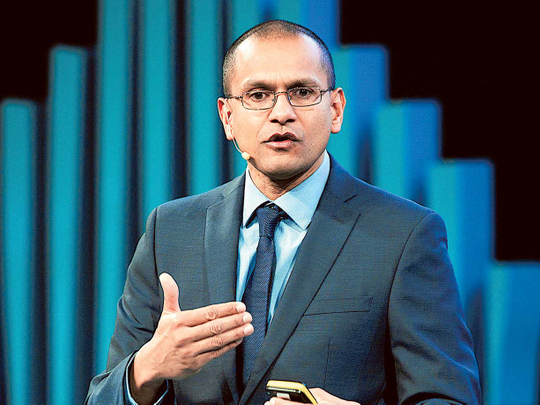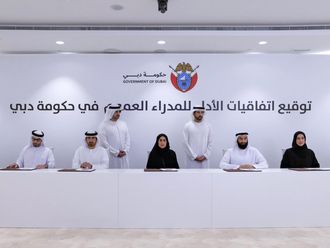
Dubai: The nature of the mind is the primary cause of most of stress, anxiety and fear, according to Pandit Dasa, US-based speaker and meditation teacher.
Dasa presented a talk on Crash Course on Life: Surviving Stress before the official opening of the World Government Summit in Dubai on Monday.
According to the American Institute of Stress, 46 per cent of all our stress comes from work, 28 per cent arises out of people’s issues, 20 per cent from juggling professional and personal work, and 6 per cent from lack of job security.
“The mind is very much like a hard drive with so many files on it. We are gathering thousands and thousands of impressions. The mind also compares to a sponge. Every person and every place affects our consciousness,” said Pandit Dasa.
He added that on an average, a human mind processes 25,000-30,000 thoughts every day, which translates into an incredible 1,000-2,000 thoughts every hour, of which a lot are negative in nature.
“A lot of these thoughts in our mind have a strong impact on the body, which affects overall health and well0being,” Pandit Dasa noted.
He pointed out that mindfulness, of which meditation is the most important component, is a powerful technique for combating stress. “Mindfulness means becoming aware of one’s thoughts and emotions and bringing one’s mind to the present moment. It is the act of getting in touch with one’s self. Meditation training makes you focus better, relaxes your body and mind,” he said.
Citing Forbes, Pandit Dasa added: “Meditation makes you more productive, enhances creativity and memory. The Journal of American Medical Association also says ‘when it comes to treatment of depression, anxiety, pain, the [meditation] practice may be just as effective as medication’. Meditation is a workout for your mind. The key is to make the mind your friend. And that’s possible through meditation, which reduces conflict in our daily lives, improves relationships, makes us more connected and become more compassionate.”












